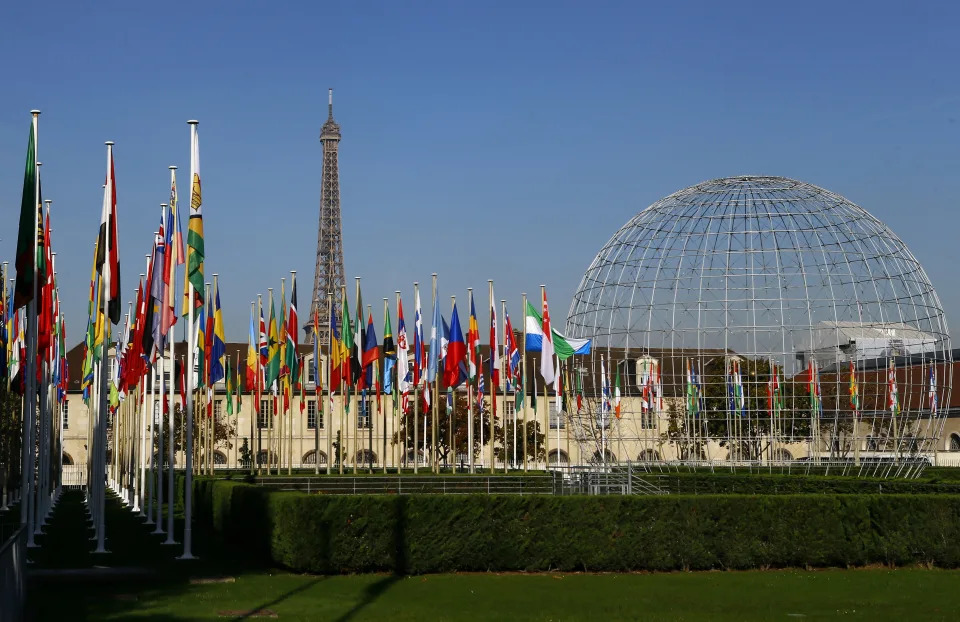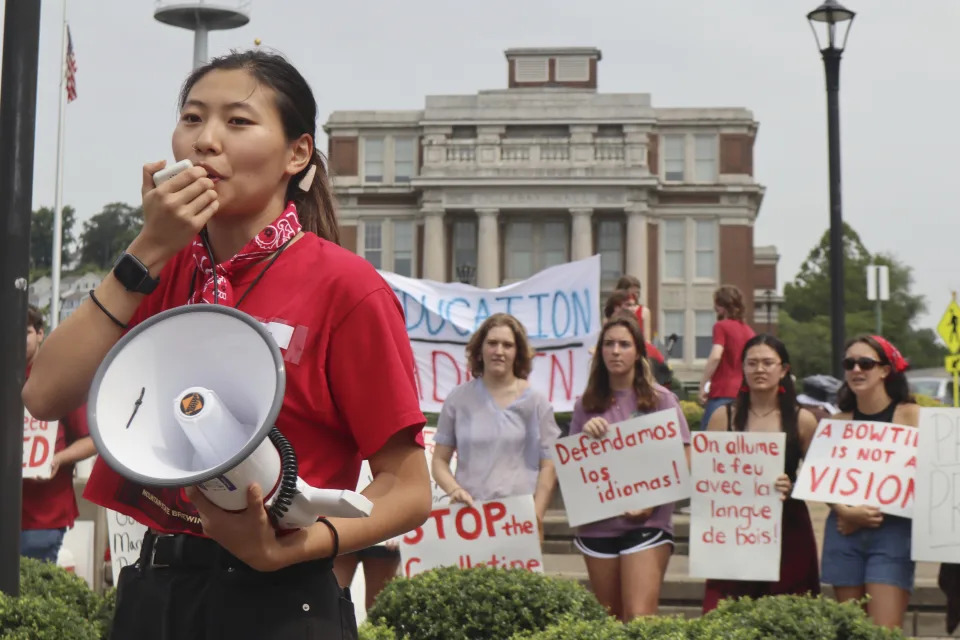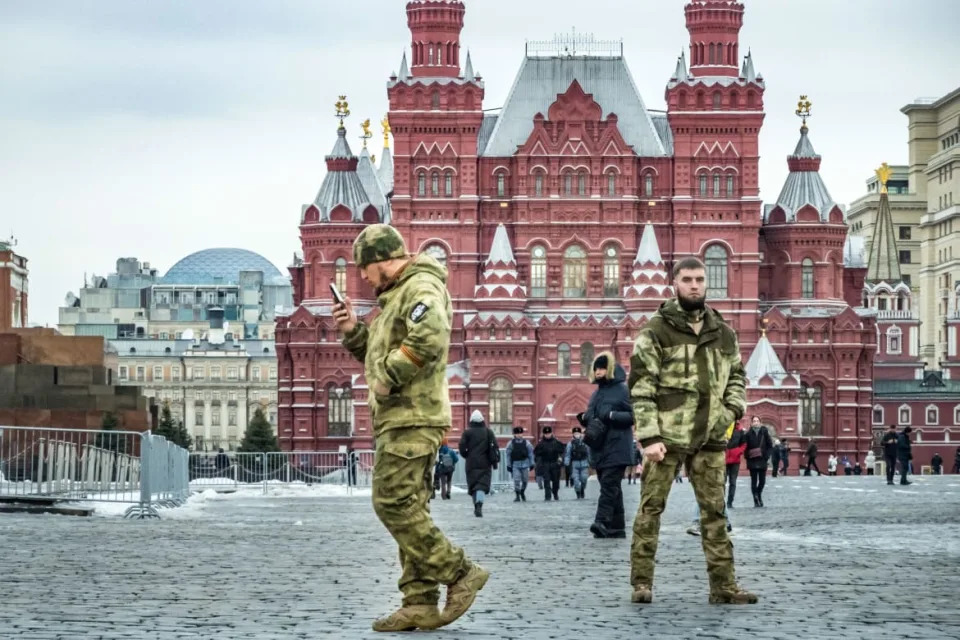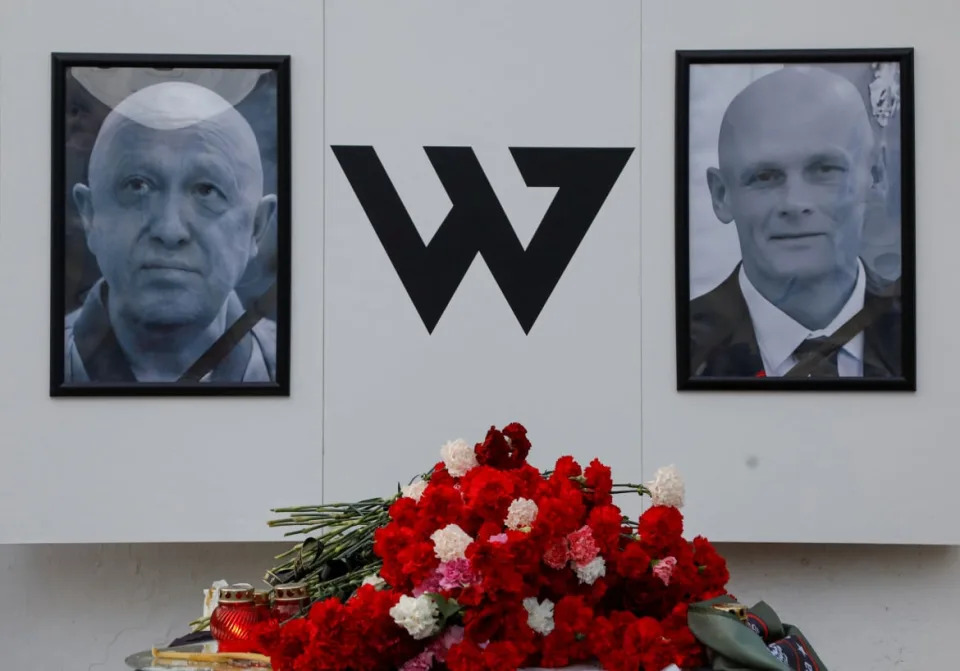NINIEK KARMINI and JIM GOMEZ
Updated Tue, September 5, 2023



Indonesia ASEANCambodia's Prime Minister Hun Manet, right, talks to Foreign Minister Sok Chenda Sophea as they attend attend the retreat session at the Association of Southeast Asian Nations (ASEAN) Summit, in Jakarta, Indonesia, Tuesday, Sept. 5, 2023. (Mast Irham/Pool Photo via AP)
JAKARTA, Indonesia (AP) — Southeast Asian leaders decided that Myanmar won’t take over the rotating leadership of their regional bloc as scheduled in 2026, Asian diplomats and a leader said Tuesday, in the latest blow to efforts by its ruling generals to gain international recognition after violently seizing power in 2021.
Western governments led by the United States have condemned the Myanmar army’s ouster of Aung San Suu Kyi’s democratically elected government in 2021 and have demanded her immediate release from yearslong detention along with other officials.
The Philippines agreed to take over the regional bloc’s chairmanship in 2026 at an ASEAN summit hosted by Indonesia on Tuesday, Philippine President Ferdinand Marcos Jr. said in a statement, citing what he told fellow leaders in the closed-door meetings.
“It is my pleasure to announce that the Philippines is ready to take the helm and chair ASEAN in 2026,” Marcos told his ASEAN counterparts in Jakarta, the statement said.
Marcos did not explain why Myanmar lost the prestigious yearlong ASEAN chairmanship, but two ASEAN diplomats told The Associated Press that it was related to the civil strife in the country and fears that the bloc's relations with the United States and the European Union, among others, might be undermined because of their non-recognition of the military-led government in Myanmar.
The diplomats spoke on condition of anonymity because they were not authorized to discuss the delicate issue publicly.
Continuing deadly civil strife in Myanmar and new flare-ups in long-simmering territorial disputes in the South China Sea were high in the agenda of the 10-nation bloc’s talks on Tuesday.
Thorny issues including the U.S.-China rivalry in the region have set off divisions within ASEAN, and Indonesian President Joko Widodo renewed his call for unity.
"All of us are aware of the magnitude of the world’s challenges today, where the main key to facing them is the unity and centrality of ASEAN,” Widodo told fellow leaders.
He likened the regional group to a big ship carrying Southeast Asia’s people. “ASEAN leaders must ensure that this ship is able to keep going, able to keep sailing,” Widodo said. “We must be captains of our own ships to bring about peace, to bring about stability, to bring about shared prosperity."
In a punitive step for their failure to comply with a five-point domestic peace plan crafted by ASEAN leaders in 2021, Myanmar’s top generals and their appointed officials were again barred from attending this year's summit in Jakarta despite suggestions by some member states that they be allowed back because their ejection had failed to resolve the country's crisis.
Indonesian Foreign Minister Retno Marsudi said ASEAN leaders decided to stick with the peace plan despite an assessment that it has not led to any progress in easing the crisis. They designated three nations — the bloc's previous, current and next chairs — to deal directly with Myanmar's civil unrest, she told reporters.
Myanmar's generals will continue to be barred from attending high-level ASEAN meetings, Marsudi said.
Myanmar security forces have killed about 4,000 civilians and arrested 24,410 others since the army takeover, according to the Assistance Association for Political Prisoners, a rights monitoring organization.
After their summit on Tuesday, the regional group’s leaders will meet with Asian and Western counterparts from Wednesday to Thursday, including U.S. Vice President Kamala Harris, who is attending in lieu of President Joe Biden, Chinese Premier Li Qiang, and Russian Foreign Minister Sergey Lavrov.
Japanese Prime Minister Fumio Kishida said before flying to Jakarta that he plans to offer assurances of the safety of the ongoing release into the sea of treated radioactive wastewater from the damaged Fukushima nuclear power plant. The release began on Aug. 24 and China immediately imposed a ban on all Japanese seafood.
Asked about the possibility of a meeting with Chinese Premier Li in Jakarta, Kishida said there had been no decision made on that.
Kishida and three Cabinet ministers recently ate flounder, octopus and sea bass sashimi caught off the Fukushima coast after the start of the wastewater release in an effort to show they were safe.
On the South China Sea territorial disputes, the ASEAN leaders “reaffirmed the need to enhance mutual trust and confidence, exercise self-restraint in the conduct of activities that would complicate or escalate disputes and affect peace and stability and avoid actions that may further complicate the situation,” according to a post-summit communique to be issued by Widodo in behalf of the other leaders.
ASEAN members Vietnam, the Philippines, Malaysia and Brunei are involved in the territorial standoffs in the South China Sea, which China claims virtually in its entirely.
"We discussed the situation in the South China Sea, during which concerns were expressed by some ASEAN member states on the land reclamations, activities, serious incidents in the area, including actions that put the safety of all persons at risk, damage to the marine environment, which have eroded trust and confidence, increased tensions, and may undermine peace, security, and stability in the region,” the leaders planned to say, using similar language as in past communiques.
___
Associated Press writers Edna Tarigan in Jakarta and Mari Yamaguchi in Tokyo contributed to this report.
Myanmar's jailed ex-leader Aung San Suu Kyi ailing - source
Reuters
Mon, September 4, 2023

Protest marking the second anniversary of Myanmar's 2021 military coup outside Myanmar Embassy, in Tokyo
(Reuters) - Myanmar's detained former leader Aung San Suu Kyi is ailing and a request for an outside physician to see her has been denied by the country's military rulers, a source familiar with the matter and the shadow government loyal to her said on Tuesday.
The 78-year-old Nobel laureate instead has been treated by a prisons department doctor.
"She was suffering swelling in her gums and could not eat well and is feeling light-headed along with vomiting," said the source, who declined to be identified due to fear of arrest.
Myanmar military junta spokesperson did not answer calls from Reuters.
The Southeast Asian country has been in turmoil since early 2021, when the military overthrew Suu Kyi's elected government and cracked down on opponents of military rule, with thousands jailed or killed.
Suu Kyi is facing 27 years of detention related to 19 criminal offences. She denies all the charges for which she was convicted, ranging from incitement and election fraud to corruption, and has been appealing against them.
In July, she was moved to house arrest from prison in the capital, Naypyitaw.
Myanmar's exiled National Unity Government, set up by opponents of military rule and the remains of Suu Kyi's previous government, said the healthcare and security of political detainees is the responsibility of the military junta.
"The international community should pressure the junta for the healthcare and security of all the political detainees including Aung San Suu Kyi," Kyaw Zaw, spokesperson for the National Unity Government, told Reuters.
Many governments have called for the unconditional release of Suu Kyi and thousands of other political prisoners, and some, including the United States, European Union and Great Britain, have targeted the Southeast Asian country's military with sanctions.
(Reporting by Reuters Staff)














